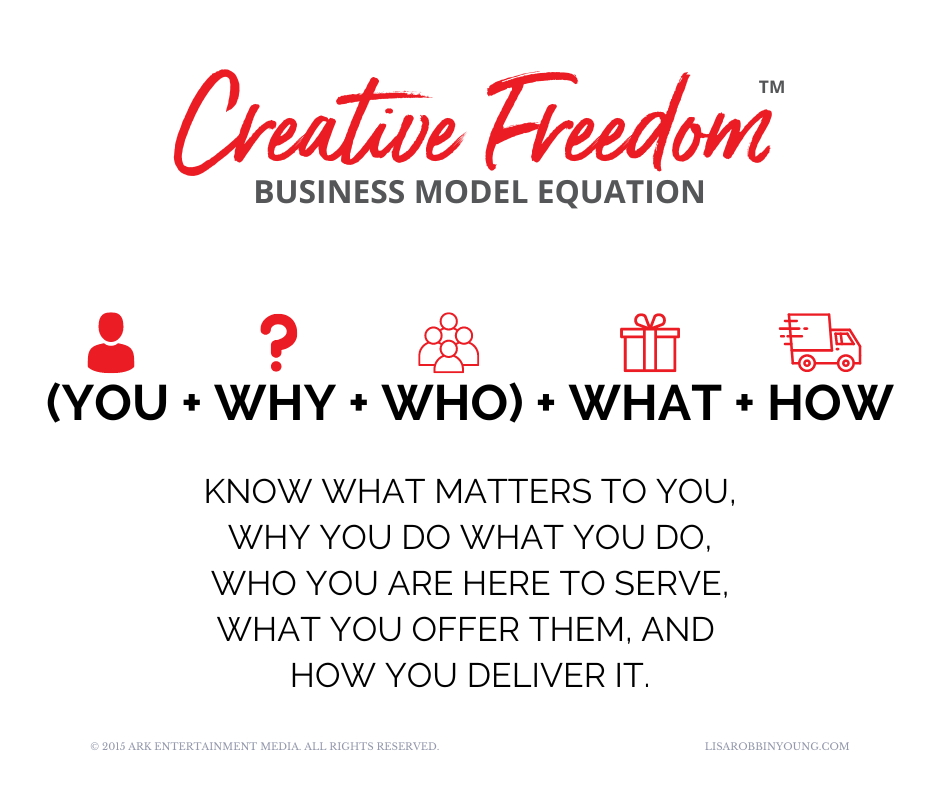I've noticed a trend in my email inbox recently...
Even the high-ticket, luxury sellers are seeing belt-tightening behaviors in their audience. One high-end business consultant I know piled on a bunch of bonuses for their intensive, slashed the price by 25%, offered a longer payment plan than normal and still had "ONE SEAT LEFT" for their offer at the cart close deadline. They followed it up the next week with a group version of the same offer - something they've "never done before".
They kept using those words: "I've never done this before."
So no, it's not just you. Selling anything right now is requiring more effort for most folks.
Especially folks who don't have their business model figured out.
A rock-solid business model is essential if you want to achieve your goals and dreams. If you're a creative entrepreneur, you might not be focused on that aspect of your company.
I get it. Many folks are turned off and their eyes start to glaze over when I even mention the words. But it's the crux of how business gets done.
A business model is essentially the plan that outlines how your business will make money. It's the strategy you'll use to attract customers, deliver value, and generate revenue.
Now, you might be thinking, "But I'm a creative entrepreneur, why do I need a business model?"
Well, the truth is, having a solid business model is just as important for creative entrepreneurs as it is for any other business owner. In fact, I would argue that it's even more important.
Simply put, it's the foundation of your business. It's how you make money, who your target customers are, and how you deliver your product or service to them. Here at Creative Freedom HQ, we use a simple "equation" to help you create a business model that works for how you're wired to work:

It's a flexible framework that lets you lean into what matters most to you. It's much easier to navigate than most of the business model design tools out in the world right now.
Without a solid business model, your business is like a ship without a rudder. You may have a great product or service, but if you don't know how to reach your customers and generate revenue, you'll be steering in circles, and getting nowhere fast.
A business model helps you stay focused. When you have a clear understanding of how you're making money and who you're serving, you can concentrate on what matters most - delivering value to your customers, generating revenue, and enjoying the fruits of your labors!
A solid business model also makes it easier to make decisions. You'll know exactly who your target customers are and what they want, so you can create offers that meet their needs without a lot of extra spaghetti throwing!
And perhaps most importantly, a rock-solid business model helps weather the ups and downs of the market. With a clear understanding of your revenue streams and customer base, you'll be able to make informed decisions that keep your business profitable and growing.
That means you'll spend a lot less time scrambling to create revenue during the inevitable belt-tightening periods!
I like to say that if you're making any money in your business, you have a business model. The better question is whether or not it's working for you.
Taylor Swift is not just a talented musician, she's also a savvy businesswoman. She's moved from country to pop music and built a brand around her music. Swift knows her audience, and she adapts her business model to stay ahead of the game.
Business models evolve as you evolve. Take Dwayne "The Rock" Johnson, for example. He's not a wrestler anymore. And he's not just an actor, either. Johnson built a personal brand around his larger-than-life personality. He then parlayed that into physical products like tequila. He's evolved his brand and his business model several times since his wrestling days.
What if you're not famous (yet)? Well, the same principles apply. Whether you're a freelance writer, a graphic designer, or a photographer, having a solid business model is essential if you want to succeed.
A solid business model will help you:
In our Rising Tide Community, we have a workshop that walks you through the process step-by-step. And the best part? Our business model workshop is available on demand, so you can take it at your own pace.
If you're not already a member of the Rising Tide Community, we're currently offering an open house, which means you can try our learning library and connect with other members in the community at no cost. Come play with us!
Regardless of whether you join us or not, it's important to have a rock-solid business model that works for how you're wired to work. Otherwise, you'll be launching, re-launching, and throwing spaghetti on the wall just to hit your income goals. And that's pretty exhausting!